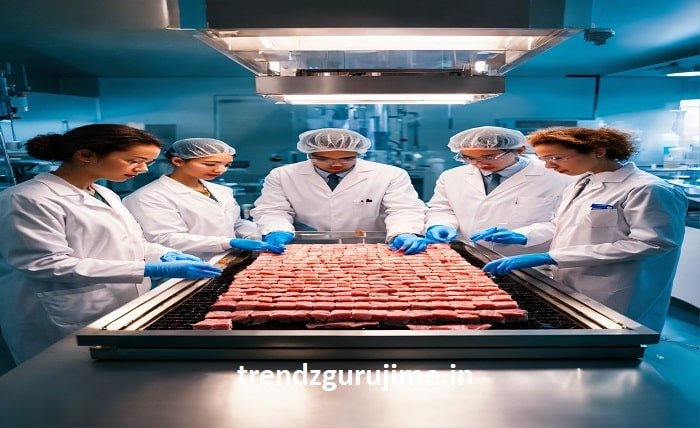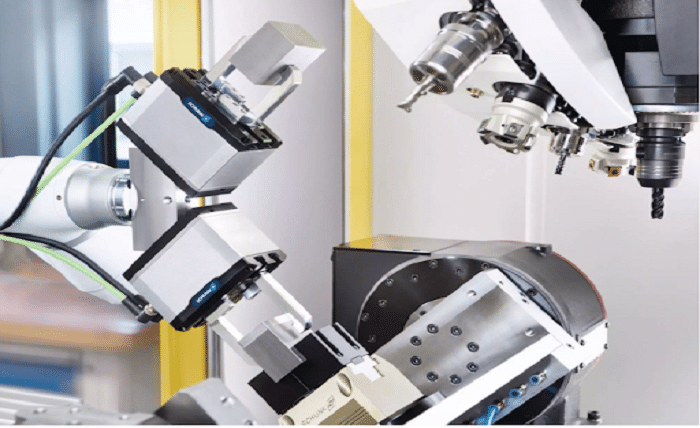In a world where the food industry is rapidly evolving, pursuing a BSc Food Technology degree opens doors to a plethora of opportunities. BSc Food Technology equips students with the knowledge and skills required to innovate and improve food products, ensuring quality and safety from farm to fork. This comprehensive guide will delve into every aspect of BSc Food Technology, helping you make an informed decision about your academic and professional future.
What is BSc Food Technology?
BSc Food Technology is an undergraduate program that focuses on the application of food science to the selection, preservation, processing, packaging, distribution, and use of safe food. The BSc Food Technology curriculum combines principles from disciplines like chemistry, microbiology, and engineering to develop new food products and improve existing ones. By pursuing a BSc in Food Technology, students become proficient in understanding the complexities of food production and quality management.
Eligibility Criteria for BSc Food Technology
Before applying for a BSc Food Technology program, it’s essential to understand the eligibility requirements. Typically, candidates must have completed their 10+2 education with a science stream, including subjects like Physics, Chemistry, Biology, or Mathematics. A minimum aggregate score of 50% is usually required for admission into a BSc Food Technology course. Some institutions may also consider entrance exam scores for BSc Food Technology admissions.
Admission Process for BSc Food Technology
The admission process for BSc Food Technology varies across institutions. Generally, it involves filling out an application form, submitting required documents, and appearing for entrance examinations if applicable. Some colleges offer direct admission based on merit, while others may require candidates to clear entrance tests specifically designed for BSc Food Technology aspirants. It’s advisable to check the specific admission criteria of the colleges you are interested in for BSc Food Technology.
Curriculum and Subjects in BSc Food Technology
The BSc Food Technology curriculum is designed to provide a balanced mix of theoretical knowledge and practical skills. Core subjects in BSc Food Technology include Food Chemistry, Food Microbiology, Food Processing Technology, Food Quality Management, and Nutrition. Electives and lab sessions are integral parts of the BSc Food Technology program, allowing students to specialize in areas of interest and gain hands-on experience in food analysis and product development.
Skills Required for BSc Food Technology
Success in BSc Food Technology requires a blend of technical skills and personal attributes. Analytical thinking and attention to detail are crucial for laboratory work and quality control in BSc Food Technology. Communication skills are important for collaborating with teams and presenting findings. A passion for innovation and a keen interest in the science behind food will enhance your learning experience in BSc Food Technology.
Top Colleges Offering BSc Food Technology
Choosing the right institution is vital for a fruitful BSc Food Technology education. Some of the top colleges offering BSc Food Technology in India include:
- University of Delhi
- Amity University
- Jadavpur University
- Punjab Agricultural University
- Tamil Nadu Agricultural University
These institutions are renowned for their comprehensive BSc Food Technology programs, experienced faculty, and excellent infrastructure.
Career Opportunities after BSc Food Technology
A BSc Food Technology degree opens up diverse career paths in the food industry. Graduates can work in food processing companies, quality assurance laboratories, research institutions, and government agencies. Job roles after BSc in Food Technology include Food Technologist, Quality Assurance Manager, Product Development Scientist, and Food Safety Officer. The demand for professionals with a BSc Food Technology background is on the rise due to increasing consumer awareness about food quality and safety.
Higher Studies after BSc Food Technology
Continuing education after BSc in Food Technology can enhance your expertise and career prospects. Pursuing a Master’s degree in Food Technology, Food Science, or related fields allows for specialization and research opportunities. Higher studies after BSc in Food Technology can lead to careers in academia, advanced research, and leadership positions in the industry.
Salary and Job Profiles after BSc Food Technology
The salary prospects after completing a BSc in Food Technology are promising, with entry-level positions offering competitive packages. On average, a BSc Food Technology graduate can expect a starting salary ranging from INR 2.5 to 4.5 lakhs per annum, depending on the job profile and employer. With experience, professionals with a BSc Food Technology degree can advance to higher positions with salaries upwards of INR 8 lakhs per annum. Job profiles vary from technical roles like Food Analyst to managerial positions like Quality Control Manager, all leveraging the expertise gained during BSc Food Technology studies.
Conclusion
Embarking on a journey with BSc Food Technology can be a fulfilling and rewarding experience. The program not only imparts essential scientific knowledge but also hone practical skills vital for the food industry’s dynamic environment. As the demand for safe, nutritious, and innovative food products continues to grow, professionals with a BSc Food Technology degree will play a crucial role in shaping the future of food. If you have a passion for science and a desire to make a tangible impact on society, BSc Food Technology is the perfect stepping stone towards a successful career.
FAQ
1. What are the job prospects after completing a BSc in Food Technology?
After completing a BSc in Food Technology, graduates have diverse job prospects in the food industry. They can work as Food Technologists, Quality Assurance Managers, Food Safety Officers, and Product Development Scientists. The BSc Food Technology degree equips them with the skills required for roles in food processing companies, research institutions, and government agencies.
2. Is mathematics compulsory for pursuing a BSc in Food Technology?
While some institutions require mathematics as a subject in 10+2 for admission into BSc Food Technology, others accept candidates with Biology instead. It’s important to check the specific eligibility criteria of the colleges offering BSc Food Technology programs.
3. Can I pursue higher studies after a BSc in Food Technology?
Yes, after completing a BSc in Food Technology, you can pursue higher studies like MSc in Food Technology, Food Science, or related fields. Higher studies after a BScaaaaa in Food Technology provide opportunities for specialization and can lead to careers in research and academia.
4. What is the average salary of a BSc Food Technology graduate?
The average starting salary for a BSc Food Technology graduate ranges from INR 2.5 to 4.5 lakhs per annum. With experience and higher qualifications, professionals with a BSc Food Technology degree can earn significantly higher salaries.
5. What skills are essential for success in BSc Food Technology?
Success in BSc Food Technology requires analytical thinking, attention to detail, and strong communication skills. A passion for food science and innovation is also important. Practical laboratory skills and the ability to work in teams are essential components of the BSc Food Technology program.





